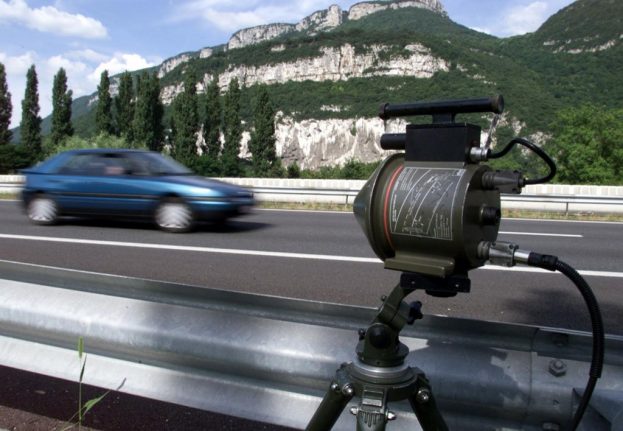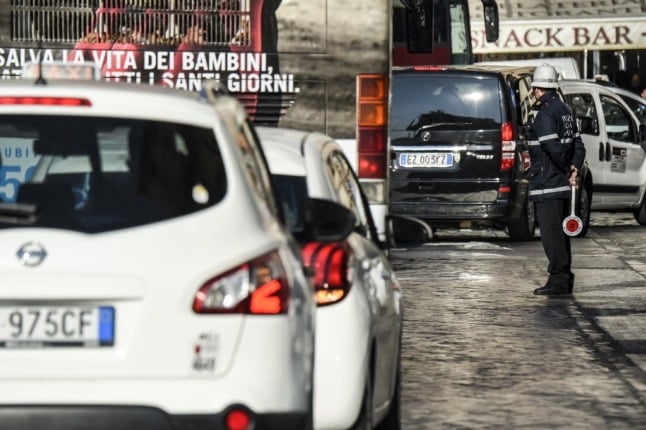Another ongoing case is a Briton who has received more than 50 speeding fines this year – and they are still arriving in his letterbox in Oxford – despite the fact that he has not driven in France since he took his car across the Channel in 2016.
The Canadian, who has asked to be identified only by his first name Richard, rented the car at an Avis Budget branch at Gare du Nord station in Paris for a day in March this year.
“The rental was good, no problems with the car and the agency was polite. However, three weeks after I returned home to Canada I started to receive speeding tickets,” he told The Local.
“None of the tickets I received are from the date I rented the car nor are they for the car I rented. I have received 27 tickets so far,” said Richard, whose case is just one of many, as a search on social media reveals that many tourists are being scammed in similar ways.
Richard turned to The Local to ask for help after he received no reply from the car rental agency when he asked it to explain the deluge of speeding fines that were landing in his letter box.
READ MORE:
When The Local asked Avis Budget, which has 11,000 rental locations in around 180 countries, for an explanation, a company spokesperson sent a statement in reply.
“This is an isolated incident which I will look into internally with the person in charge of (traffic offences) fines,” it said.
“But it is clear that our company respects the rules of GDPR (EU General Data Protection Regulation) and the hypothesis of any communication of personal data can be absolutely ruled out,” it said.
But Avis Budget was not immediately able to explain what exactly had happened in the case of the Canadian tourist and how his data was being fraudulently circulated, after he had provided it to the car rental firm, to be used illegally by people trying to avoid speeding fines.
The Local visited the Avis agency in the Gare du Nord where Richard rented his car, but the manager there said he knew nothing about the case and was unaware of any of his customers' identities being used fraudulently.
When someone is caught driving over the speed limit, a letter with the fine will be sent to the rental company, which will look at its records to see who had rented the car on that date.
 AFP
AFP
It will then give the driver's name to ANTAI, the French government agency that doles out speeding and parking tickets, and ANTAI will post the fine to that person.
Speeding fines in France start at €90 if paid immediately but can rise to €375 if not paid within 45 days.
“I already disputed two of the 27 violations online,” said Richard.
“(But) I don't think that disputing 27 tickets is the best approach to resolving this issue as the authorities will fail to see the greater issue of identity fraud,” he said.
Alistair Drummond, the Briton who has received more than 50 fines since February, said that each fine states that the person who first received the fine had told the French authorities that he, Mr Drummond, was behind the wheel of the car at the time it was caught speeding.
“Every time it is a different car, in a different place, with a different person driving,” the public relations professional, who last visited France in his car in 2016, told The Local.
He has phoned and written to ANTAI to ask them to stop sending him the fines but has met with indifference.
“They just tell me to keep appealing them,” he said.
When The Local phoned the Antai helpline on Friday a member of staff told us that foreign drivers had no other option but to keep appealing the fines and suggested if they didn't they might end up in trouble if they returned to France.
Earlier this year The Local reported how a tourist who rented a car during a holiday in France with his wife was the victim of ID fraud and since returning home has been continuously receiving speeding and parking tickets from the French government. The couple, who visited France for around two weeks in October last year, have received 17 speeding and parking fines from French authorities since returning to their home in Sweden.
All the fines are related to private cars the couple have not used at times when they were not in the country.
In September 2018, someone going by the name of @DaleGribble13 tweeted the following to the French police: “Hello, I live in Canada and I got a French ANTAI ticket in the mail for driving with a cellphone. I have never been to France before, I suspect identity theft. Can you please help me?”
@PoliceNationale Hello,
I live in Canada and I got a French ANTAI Ticket in the mail for Driving with a cellphone. I have never been to France before, I suspect Identity theft. Can you please help me?
— Dale Gribble (@DaleGribble13) September 5, 2018
Identity fraud is common in France and drivers are regularly handed fines for driving offences they did not commit.
Back in 2012, Philippe Leroux appeared in court for an offense he had not committed.
“I am being sued for a parking offense committed in Paris in April, when I bought my car in Nantes in June,” he told the press at the time. “I gave all the evidence: act of purchase, invoices, certificate of the dealer … So why am I in court?”
If you find yourself in a similar situation, you can follow the steps detailed on the ANTAI site in English to contest fines.
by Rory Mulholland



 Please whitelist us to continue reading.
Please whitelist us to continue reading.
Member comments